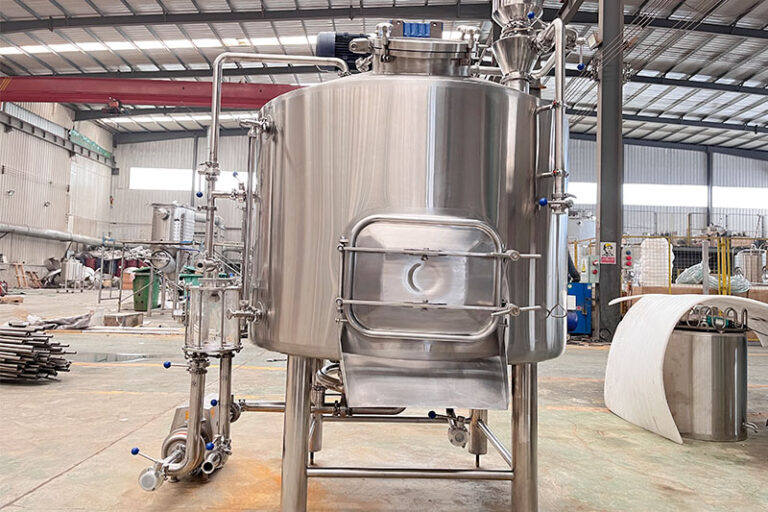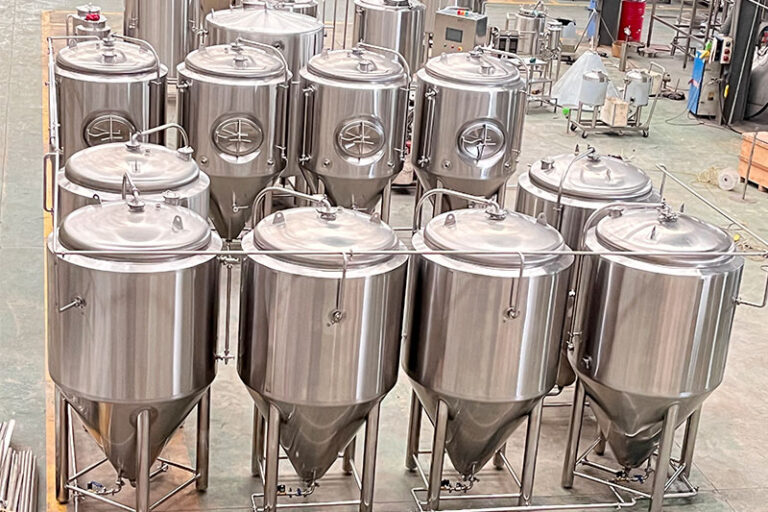Making kombucha requires a range of specific equipment to ensure the success of the fermentation process and the quality of the drink. The core equipment is the fermentation vessel, usually a fermentation tank, which is used to mix the tea and SCOBY for the initial fermentation. Another essential equipment is the SCOBY, which is the key to the fermentation process and is responsible for converting the tea into kombucha. To ensure that the fermentation process goes smoothly, a breathable cloth and rubber band are also required to cover the fermentation vessel to prevent dust and insects from entering while allowing gas to be released. In addition, some auxiliary equipment such as measuring cups, filters, thermometers, and pH meters can also help you control the production process more accurately to obtain the best flavor of kombucha.

What is Kombucha?
Kombucha is a fermented tea drink with a long history and unique flavor. The process of making Kombucha involves mixing tea with sugar and adding an active strain called SCOBY (symbiotic community), which includes bacteria and yeast. Under the right environment, the fermentation process converts sugars into organic acids, bubbles, and various flavor components, resulting in Kombucha’s unique sweet and sour taste and subtle bubbles.
The main ingredients of Kombucha:
- Tea: The basis for making Kombucha, usually black tea or green tea. Tea leaves provide the nutrients and flavor basis required for fermentation.
- Sugar: Used to provide the energy required for fermentation. Usually, white sugar, brown sugar, or other natural sugar sources are used.
- SCOBY: A cultural layer composed of symbiotic bacteria and yeast, which is the core of Kombucha fermentation. SCOBY breaks down sugars during fermentation to produce organic acids, bubbles, and other flavor substances.
What equipment is needed to make kombucha?
- Brewing kettle: The brewing kettle is an essential piece of equipment for brewing sweet tea, the first ingredient of kombucha. It allows the brewer to control the temperature, time, and ingredients of sweet tea to produce a consistent, high-quality kombucha.
- Fermentation tank: A fermentation tank is a large container, usually made of stainless steel, used to ferment kombucha. The fermentation tank should be equipped with temperature control, stirring, and airflow systems to maintain optimal conditions for kombucha cultivation and prevent contamination.
- Filtration and bottling equipment: Filtration and bottling equipment are used to remove particles and sediment from kombucha and transfer them to bottles or other containers. Filtration and bottling equipment should be able to handle the flow and pressure of kombucha and prevent spills, leaks, and waste.
- Labeling and packaging equipment: Labeling and packaging equipment is used to apply labels and seals to bottles or other containers and package them in cartons or other materials. Labeling and packaging equipment should be able to apply labels and packages accurately and efficiently and ensure that they are properly attached and sealed.
- Refrigeration equipment: Refrigeration equipment is used to cool and store kombucha before and after packaging. Refrigeration equipment should be able to maintain the required temperature and humidity and prevent the kombucha from spoiling and deteriorating.
- Cleaning and sterilization equipment: Cleaning and sterilization equipment is used to clean and sterilize fermentation tanks, filtering and bottling equipment, and other surfaces and utensils to prevent contamination and deterioration. Cleaning and sterilization equipment should be able to remove dirt and debris and kill bacteria and other microorganisms without damaging the equipment or kombucha.

Kombucha Equipment Maintenance and Cleaning
To ensure the service life of the equipment and the quality of kombucha, good cleaning and maintenance are necessary. Here are some cleaning and maintenance suggestions:
- Fermentation containers and other equipment: After each use, clean all equipment thoroughly to avoid residue affecting the next fermentation. It is recommended to use warm water and non-toxic detergents to ensure that the equipment is completely dry before use.
- SCOBY management: It is very important to keep the SCOBY clean and healthy. Check the status of the SCOBY regularly. If any abnormal odor or discoloration is found, it should be stopped immediately and replaced.
- Storage: Kombucha raw materials and finished products should be stored in a cool, dry place, away from direct sunlight and a high-temperature environment, to maintain their best taste and quality.
How to choose the best kombucha brewing equipment?
- Brewing goals: Know whether you are brewing for personal consumption, sharing with friends and family, or looking to start a small business. This will help you choose the right size and type of equipment.
- Budget: Create a budget for your equipment. Although the initial investment may be higher, quality equipment can save time and energy in the long run.
- Brewing method: Decide whether to use batch brewing or continuous brewing. Batch brewing makes a new batch of tea each time, while continuous brewing allows new tea and sugar to be added as fermentation continues. Continuous systems, while more expensive, provide a constant supply of kombucha and convenience.
- Fermentation container: Choose a fermentation container made of food-grade materials, such as glass, stainless steel, or ceramic. Avoid plastic or metal containers, which may react with the acidity of kombucha or release chemicals. Make sure the container has a wide opening for easy cleaning and removal of the SCOBY and has a sealing lid to prevent contamination.
- Size: Choose the right container for the amount of kombucha you plan to brew. One-gallon (3.8-liter) jars are a common starting choice for home brewing.
- Temperature control: Kombucha fermentation requires a steady temperature (68-78°F, 20-26°C). In colder climates or when it’s difficult to maintain that temperature range, consider purchasing a heating pad or temperature control system.
- Accessories: Prepare essential brewing accessories, such as a cloth cover or airlock for your fermentation container, a food-grade thermometer, a pH meter or test strips, and a long-handled spoon for stirring.
- SCOBY and fermentation liquid: Make sure you have a healthy SCOBY (symbiotic culture of bacteria and yeast) and fermentation liquid. Get them from a reliable friend, online store, or local kombucha supplier.
- Customer reviews and support: Research customer reviews and ratings for the equipment, and check if the manufacturer offers customer support and educational resources to help you through the brewing process.
- Ease of use and maintenance: Choose equipment that is easy to operate, clean, and maintain, especially when you’re just starting to brew kombucha.

FAQ
What materials can a kombucha fermentation container be made of?
How big does the fermentation container need to be?
How do I maintain the optimal temperature for fermentation?
The ideal temperature for kombucha fermentation is 68-78°F (20-26°C). If your environment is cooler, you can use a heating pad or temperature control system to maintain a steady fermentation temperature.

